|
I am a PhD student in the Computer Science department at the University of Toronto, co-supervised by Dr. Bo Wang and Dr. Benjamin Haibe-Kains. My research focuses on applying machine learning and generative modeling to learn and predict cellular phenotypes, including phenomic and transcriptomic assays. Email / Google Scholar / Github / linkedin |
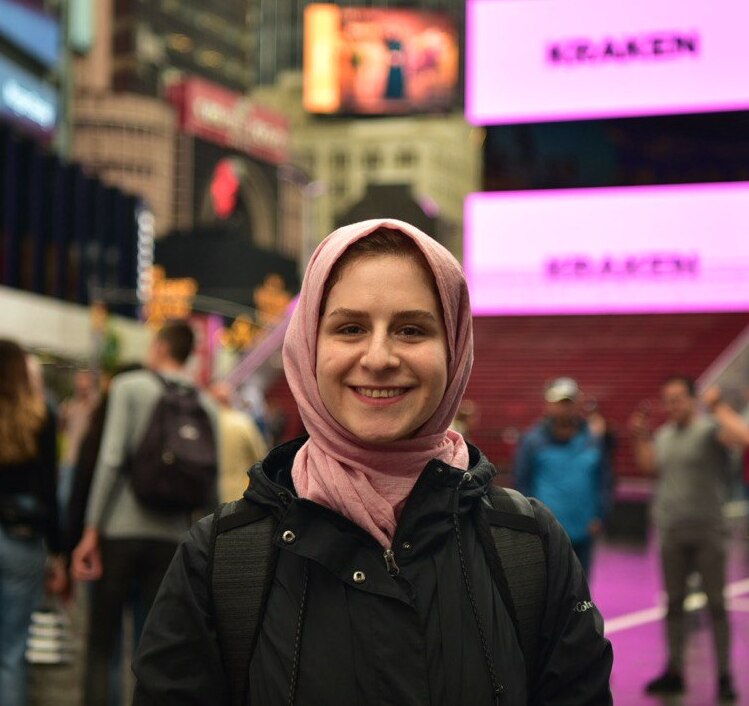
|
|
PhD in Computer Science Department, 2021 - Present University of Toronto, Toronto, Canada
MSc in Computer Engineering, Artificial Intelligence, 2016 - 2018 Iran University of Science and Technology, Iran
BSc in Software Engineering, 2011 - 2015 Sharif University of Technology |
|
I'm interested in machine learning and its application on practical real world problems such as health and biology. |
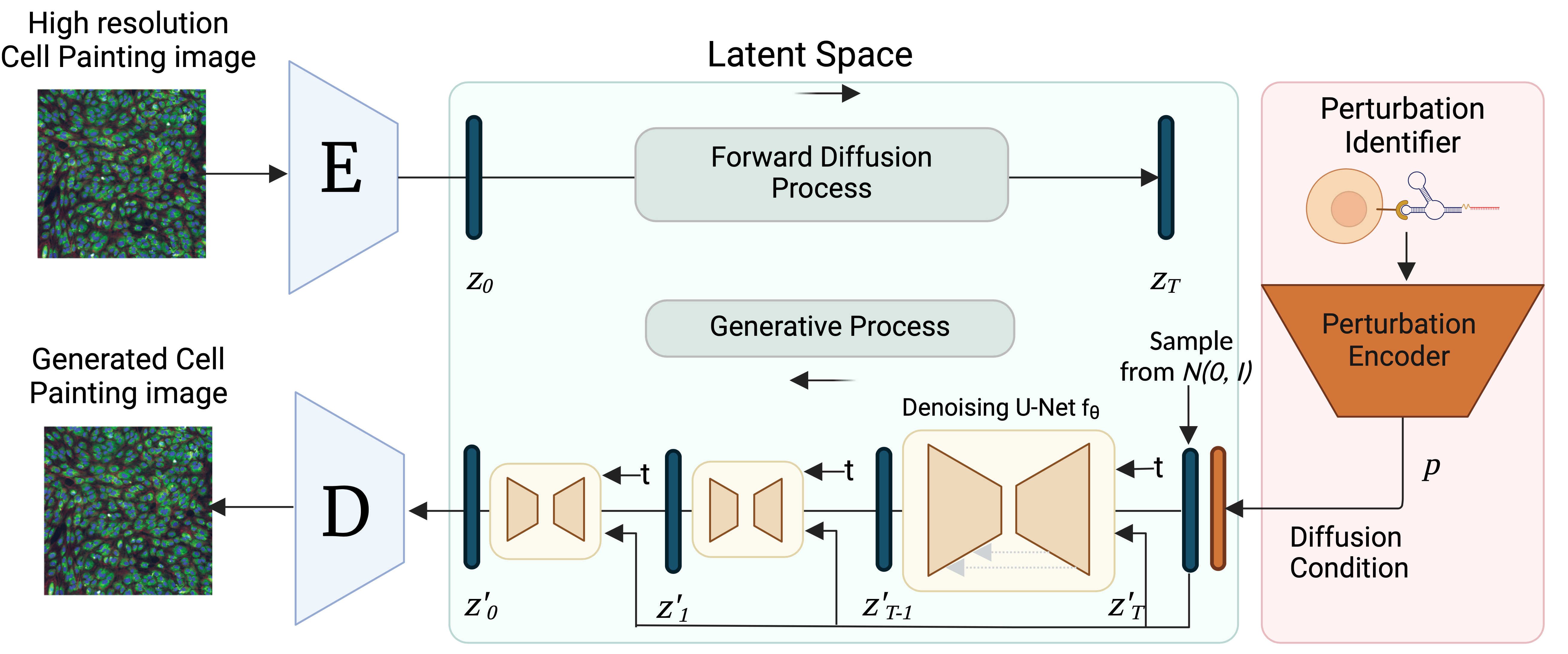 
|
Zeinab Navidi, Jun Ma, Esteban Miglietta, Le Liu, Anne E Carpenter, Beth A Cimini, Benjamin Haibe-Kains, Bo Wang The Thirteenth International Conference on Learning Representations (ICLR), 2025, Spotlight paper Understanding cellular responses to external stimuli is critical for parsing biological mechanisms and advancing therapeutic development. High-content image-based assays provide a cost-effective approach to examine cellular phenotypes induced by diverse interventions, which offers valuable insights into biological processes and cellular states. We introduce MorphoDiff, a generative pipeline to predict high-resolution cell morphological responses under different conditions based on perturbation encoding. To the best of our knowledge, MorphoDiff is the first framework capable of producing guided, high-resolution predictions of cell morphology that generalize across both chemical and genetic interventions. The model integrates perturbation embeddings as guiding signals within a 2D latent diffusion model. The comprehensive computational, biological, and visual validations across three open-source Cell Painting datasets show that MorphoDiff can generate high-fidelity images and produce meaningful biology signals under various interventions. We envision the model will facilitate efficient in silico exploration of perturbational landscapes towards more effective drug discovery studies. |
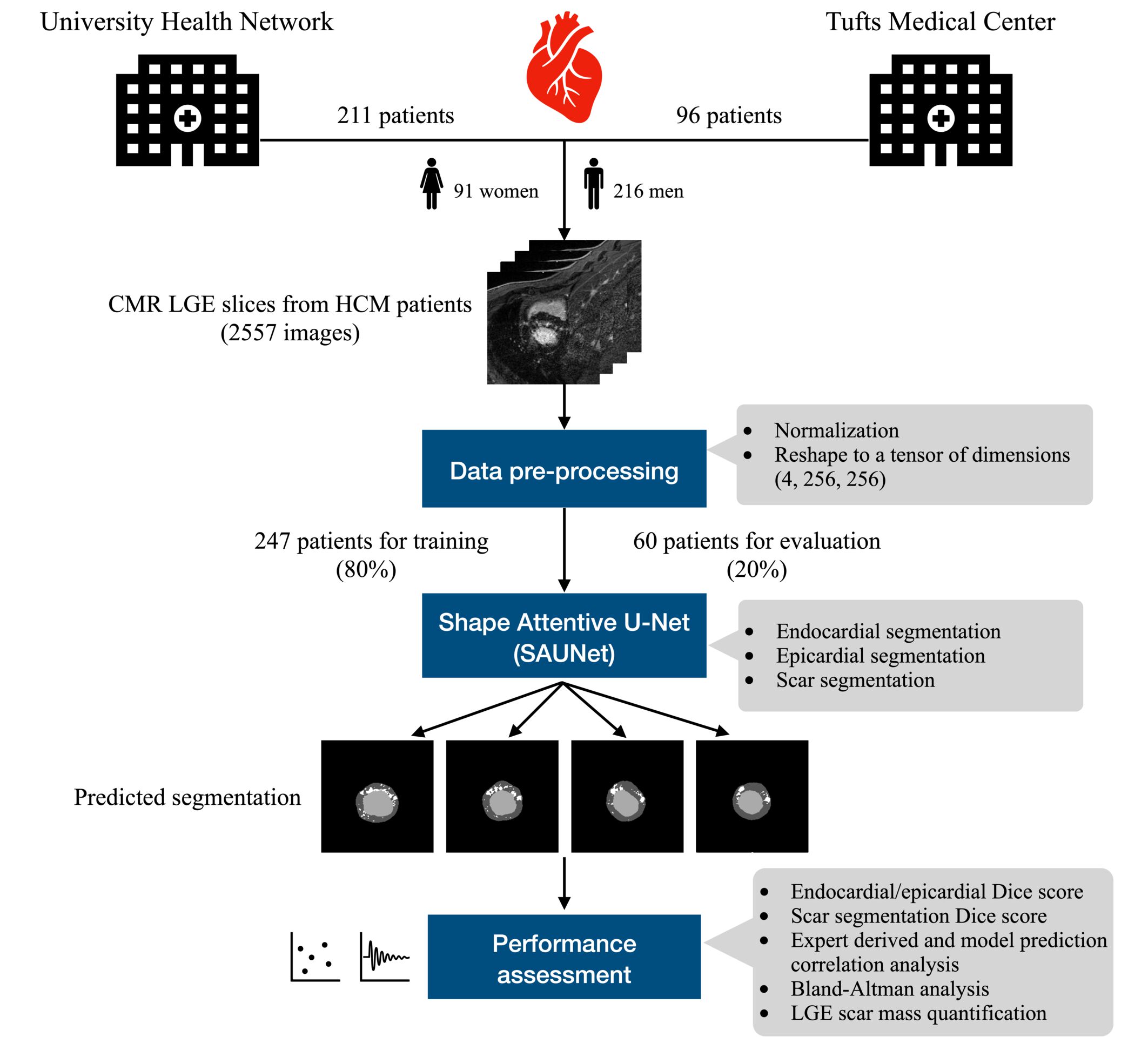 
|
Zeinab Navidi, Jesse Sun, Raymond H Chan, Kate Hanneman, Amna Al-Arnawoot, Alif Munim, Harry Rakowski, Martin S. Maron, Anna Woo, Bo Wang & Wendy Tsang PLOS Digital Health Journal, 2023 Developed an interpretable deep learning model for automatic contouring of left ventricle borders and scar quantification of patients’ cardiac magnetic resonance images My contribution: I was the lead author of this paper and performed model training/testing and statistical analysis and modelling of medical images, visulization and interpretation of results. Technical skills: Python Programming, PyTorch framework, computer vision, DICOM medical images processing and segmentation, U-Net variants, statistical analysis. |
 
|
Zeinab Navidi, Rashmi Nedadur, Frank Yu, Mitesh Badiwala & Bo Wang Awarded in the UofT T-CAIREM Trainee Rounds Competition, Awarded 3rd rank at UofT Gallie Day 2022 Developed ensemble machine learning models for early and late survival prediction of patients post heart transplant, performed trajectory analysis of donor, recipient and operative characteristics and their importance dynamics in time My contribution: I was the lead author of this paper and performed ensemble model training/testing, evaluation, visualization and interpretation of results. Technical skills: Python Programming, sklearn framework, patient variable processing, statistical analysis, Shapely Additive Explanation, trajectory analysis of patient cahracteristics. |
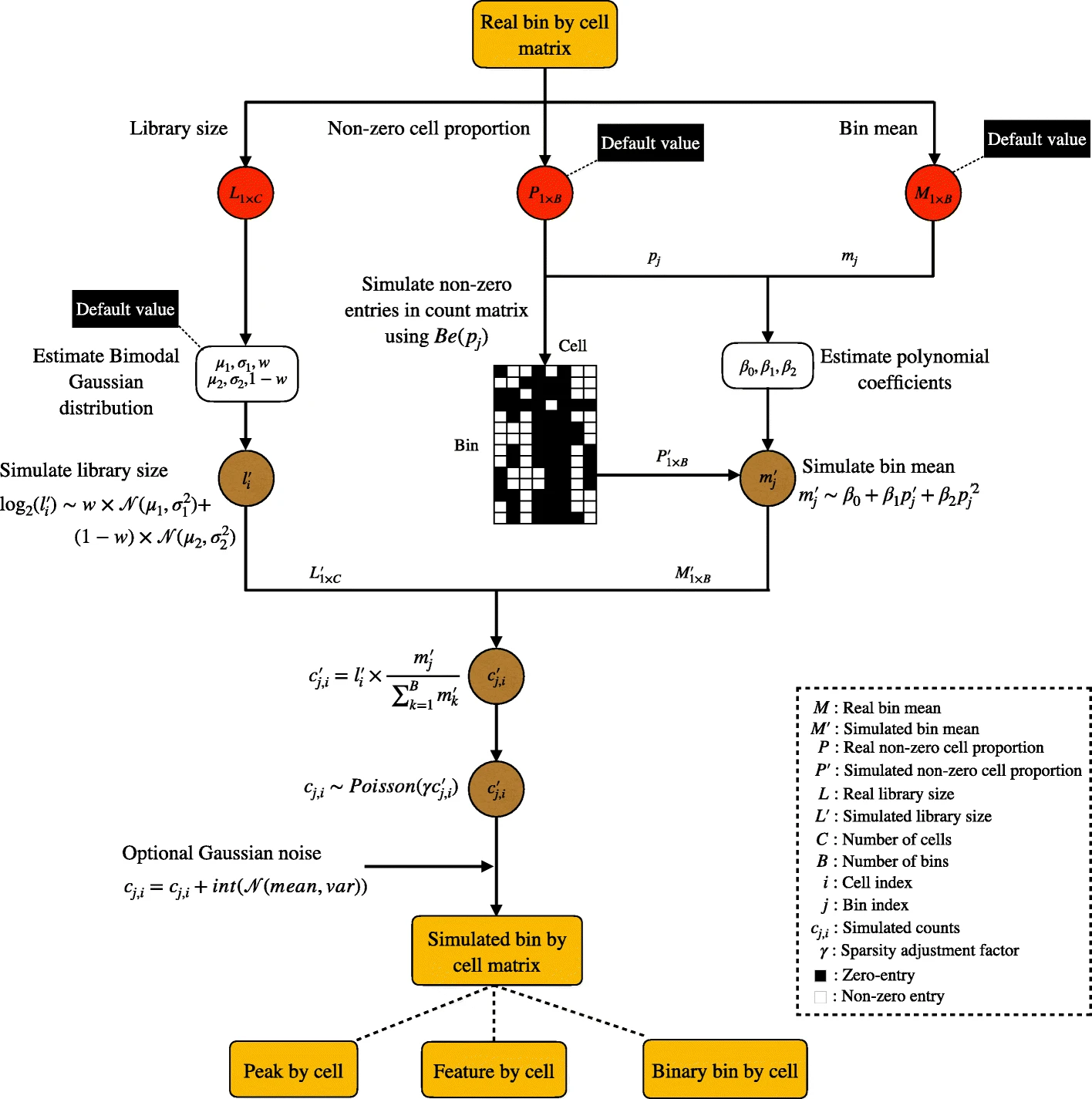 
|
Zeinab Navidi, Lin Zhang & Bo Wang Genome Biology Journal, 2021 I developed a simulation framework for Single-cell assay for transposase-accessible chromatin sequencing (scATAC-seq) data, which is a sequencing modality that identifies regulated chromatin accessibility modules at the single-cell resolution. Our framework, which is an R package, generates scATAC-seq count matrices that highly resemble real scATAC-seq datasets in library size, sparsity, and chromatin accessibility signals. simATAC deploys statistical models derived from analyzing real scATAC-seq cell groups. simATAC provides a robust and systematic approach to generate in silico scATAC-seq samples with known cell labels for assessing analytical pipelines. My contribution: I was the lead author of this paper and performed all statistical analysis and modelling of single-cell data, implemented the R package and evaluated simATAC's performance compared to real data and clustering analysis. Technical skills: R Programming, R package development, High throughput data processing (samtools, Burrow-Wheeler Aligner, Picards, 10X Cell Ranger ATAC, Bedtools, SnapATAC), distributional modelling, the goodness of fitness testing (Kolmogorov-Smirnov test and the chi-squared test), statistical hypothesis testing, regression evaluation, clustering evaluations. |
 
|
Microsoft Research Lab – New England, Massachusett, United States
Worked on a research project investigating the impact of adaptive resampling algorithms in improving learning of single-cell analysis modelling.
|
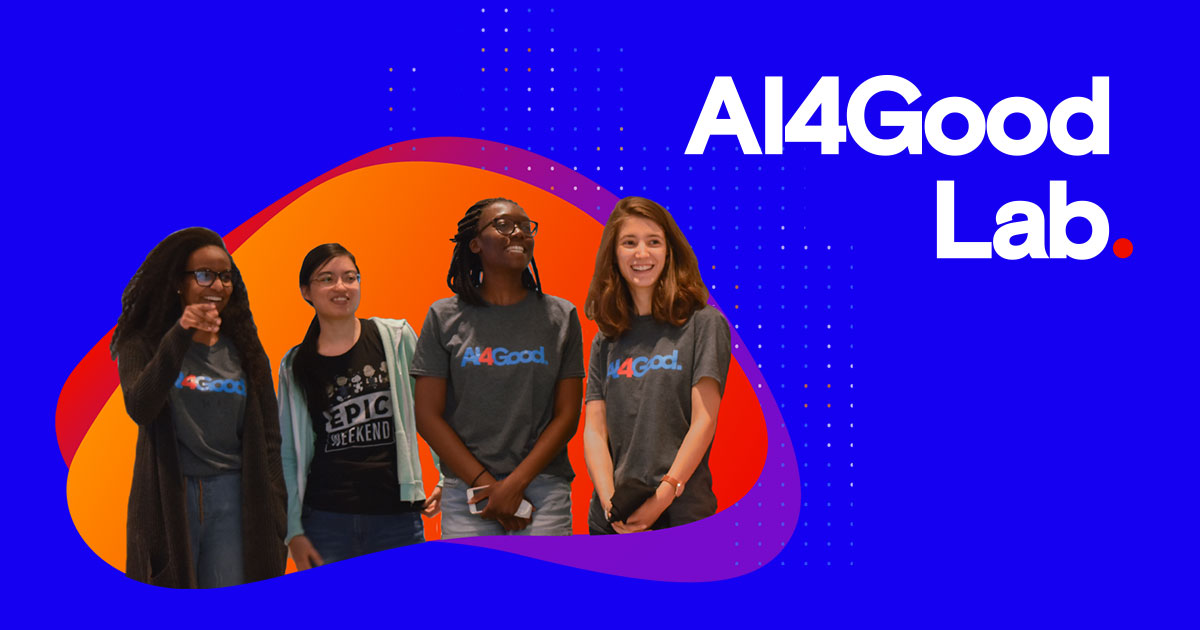 
|
AI4Good Lab, Toronto, Canada The AI4Good Lab is a 7-week program that equips women and people of marginalized genders with the skills to build their own machine learning projects. I supervised and helped a group of students during their AI learning weeks, including mathematical foundations of machine learning, foundations of ML, neural networks, CNN, RNN, and RL. I also mentored a group of students working on a project addressing racial bias in skin condition images, using different machine learning techniques and different sample distributions. |
 
|
University of Toronto, Computer Science Department, Toronto, Canada Preparation for Research Through Immersion, Skills, and Mentorship program (PRISM) As a graduate mentor, I helped students learn about and practice research skills and be immersed in parts of the research process in one semester program. |
 
|
University Health Network, Toronto, Canada Utilized computational preprocessing and analysis techniques to analyze biological data, utilizing R programming language to fit statistical distributions to biological samples and develop a data simulation framework. |
 
|
University Health Network, Toronto, Canada As a research assistant, led multiple projects deploying machine learning and deep learning methods on biological and clinical sample. Main Projects: Designed and developed advanced artificial intelligence software for predicting patient survival following heart transplant surgery based on patient clinical variables, demonstrating proficiency in machine learning methodologies. Created an interpretable machine learning model for automatic detection of cardiac regions in medical images, showcasing strong skills in image processing and analysis. |
|
Template from source code. |